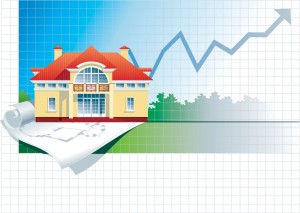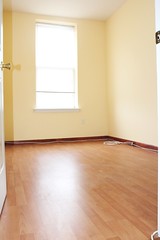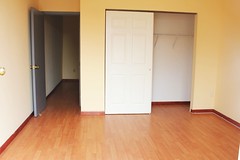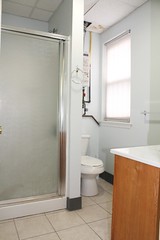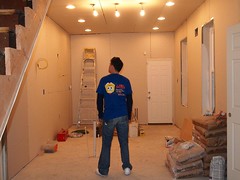Housing Market 2012.. What's In Store For The New Year?
Posted on Jan 10 in Free Educationby adminPrint

Article From: US News (via: finance.yahoo.com)
By: Meg Handley
It’s been a pretty long ride down from the meteoric highs the housing market hit in the boom years. Who knew more than five years later, Americans would still be trying to shake off the one of the worst financial hangovers the country has ever known.
Millions of homes have been foreclosed on and millions more Americans have underwater mortgages, the lasting legacy of the housing bubble that grossly overinflated home values. Now, living in homes they can’t sell, Americans today are “stuck.” Stuck financially, stuck in their homes, and stuck wondering when things will get better.
Is 2012 the year the housing market turns around? Of course, no one can say for sure, but plenty of economists say signals are pointing in the right direction.
“It has become increasingly apparent that the pieces for a housing rebound next year are beginning to fall into place,” wrote Barclays Capital analyst Stephen Kim in a recent report.
Still, obstacles remain for the housing market. Here’s look at what to expect in 2012:
Home prices bottom out. Nationally, home prices have plummeted almost 24 percent off of their peak, and most economists expect prices to continue to decline as much as 4 or 5 percent before leveling out in late 2012.
While experts don’t expect a rapid conclusion to the saga of ever-declining home prices, “the trend of eroding expectations for the housing market recovery has come to a halt,” said Terry Loebs, founder of Pulsenomics, in a release.
Nationally, prices could start seeing a modest bump in 2013, but some markets are already recovering. “[T]hese national indexes mask the sizable variation in local house-price performance,” Frank Nothaft, chief economist at Freddie Mac, wrote in a recent report. “Some markets have appreciated over the past year and are likely to gain further in 2012, while those markets with higher vacancy rates and relatively large distressed sales will continue to see downward price pressure over the next year.”
More foreclosures. Foreclosure filings have edged downward over the past few months, suggesting improvement in clearing the gigantic inventory of distressed properties in the United States. But according to a recent report from Realty Trac, a new wave of foreclosures could hit the market in early 2012.
Foreclosures have fallen near the end of this year due to eviction moratoriums during the holiday season and continued hold-ups in the legal process as states attorneys negotiate with mortgage servicers over foreclosure practices.
Clarity on that issue should restart the process and begin flushing homes through the foreclosure pipeline. That’s likely to contribute to further prices declines in some markets, particularly those affected by the foreclosure epidemic.
Low mortgage rates. Rock-bottom low mortgage rates are likely here to stay, at least through the first half of 2012, in large part due to the Fed’s commitment to keep interest rates low to spur borrowing.
All bets are off, though, if politicians come to a decision on the qualified residential mortgage measure included in the Dodd-Frank financial reform act. “One of the most substantial things that will impact the market will be the definition of the qualified residential mortgage,” says Cameron Findlay, chief economist at LendingTree. “That has the potential of entirely changing the way mortgage rates are offered to consumers and it has the risk of raising rates by about 1.25 percent.”
As it stands now, the qualified residential mortgage (QRM), could require prospective homebuyers to have at least a 20 percent down payment and face more stringent debt-to-income ratio standards to qualify for mortgages with the best interest rates.
“There’s a real potential there for rising rates in the early part of the year,” Findlay adds.
Rising rents. The foreclosure crisis has converted millions of previous homeowners to renters and many would-be homebuyers have continued to stay on the sidelines and rent, waiting for prices to “hit bottom” before jumping into the housing market fray.
With more demand comes rising rents, a trend already being seen in many metro areas across the nation. Ultimately that can be a good thing for the housing market, since it generally tips more people into buying homes.
“Rising rents have traditionally been a good factor for home sales,” says Lawrence Yun, chief economist at the National Association of Realtors.
Also, with rental demand heightened, real estate investors’ ears have perked up. With prices in many metro areas at historic lows, investors are taking advantage and scooping up properties to convert into rentals, Yun says.
Home sales pick up. The end sum of all these factors is an expected uptick in existing and new home sales next year. “There are so many improving factors that support home sales that we are calling for about a 5 percent increase in [existing] home sales in 2012 over 2011,” Yun says.
New home sales should also see an even bigger bump between 10 and 15 percent, Yun says, because the inventory of new constructions is so low. “The builders will be ramping up production,” he says.
